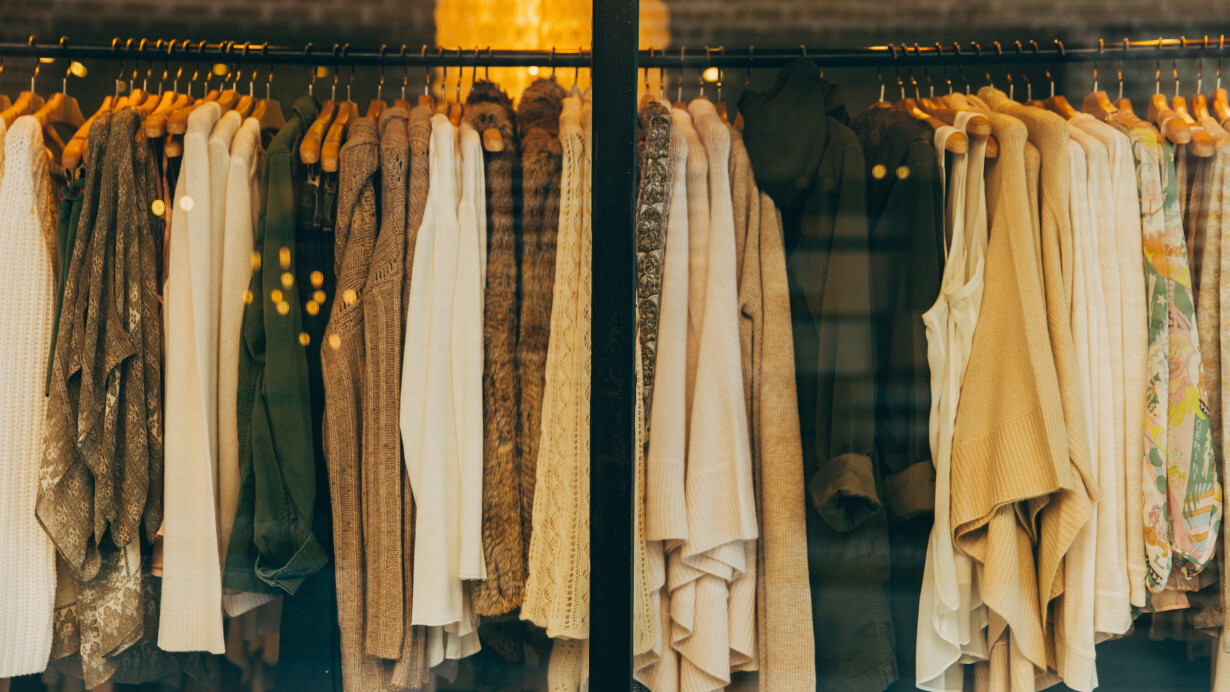
With many shoppers making the shift to e-commerce, it can be difficult to bring that luxury brick-and-mortar experience online. Online customers still need to feel that they are buying a luxury brand product with all the bells and whistles that they are accustomed to when making a purchase in-store.
To find out how to improve this online experience, I asked a panel of entrepreneurs from YEC the following question:
What’s one digital asset or strategy that all luxury e-commerce brands should implement to bridge the experience gap usually found in an upscale brick-and-mortar location?
Their best answers are below:
1. Limited-Time Offers
 Building out your digital storefront should also mean that you retain the clearance section of your store and offer “exclusive” online deals. Whether it’s coupons, BOGOs or rebates, entice people with the same promotions that you offer them in store, online. Of course, you can’t offer the same personalized experience over a website, but you can still entice loyal customers with the same deals. – Kristopher Jones, LSEO.com
Building out your digital storefront should also mean that you retain the clearance section of your store and offer “exclusive” online deals. Whether it’s coupons, BOGOs or rebates, entice people with the same promotions that you offer them in store, online. Of course, you can’t offer the same personalized experience over a website, but you can still entice loyal customers with the same deals. – Kristopher Jones, LSEO.com
2. Seamless Personalization
 Buying from a luxury brand in an upscale brick-and-mortar location is a quiet, personal experience. I would like luxury e-commerce brands to render their mobile app/site based on my persona (choices and needs) built from my public information (social media), shopping history with a brand, etc. On the site/app, an AI-driven personal shopper should be able to push recommendations to me during my shopping journey. – Shilpi Sharma, Kvantum Inc.
Buying from a luxury brand in an upscale brick-and-mortar location is a quiet, personal experience. I would like luxury e-commerce brands to render their mobile app/site based on my persona (choices and needs) built from my public information (social media), shopping history with a brand, etc. On the site/app, an AI-driven personal shopper should be able to push recommendations to me during my shopping journey. – Shilpi Sharma, Kvantum Inc.
3. Live Chat
 Upscale brick-and-mortar locations are all about exceptional customer service. You can establish the same type of experience on your e-commerce site by having a live chat option that follows customers around the site. If they have a question at any time, they can simply chat you, similar to the brick-and-mortar store experience. – Syed Balkhi, OptinMonster
Upscale brick-and-mortar locations are all about exceptional customer service. You can establish the same type of experience on your e-commerce site by having a live chat option that follows customers around the site. If they have a question at any time, they can simply chat you, similar to the brick-and-mortar store experience. – Syed Balkhi, OptinMonster
4. Rich Editorial Content
 Luxury products are only worth the premiums they charge because of the story behind the brand. Investing in rich editorial content, especially high-end photography, allows luxury brands a means of highlighting this narrative and speaking to the customer in a deeper way than traditional “catalog commerce” might. – Ross Beyeler, Growth Spark
Luxury products are only worth the premiums they charge because of the story behind the brand. Investing in rich editorial content, especially high-end photography, allows luxury brands a means of highlighting this narrative and speaking to the customer in a deeper way than traditional “catalog commerce” might. – Ross Beyeler, Growth Spark
5. Video Content
 Video content is growing more and more popular because it’s so highly effective, and live content is gaining more traction, as well. By using video, luxury retailers can bring the feeling of an in-store experience to its customers wherever they may be, but it has to be done well and as professionally as possible since conveying the “luxury” feel is still key. – Beth Doane, Main & Rose
Video content is growing more and more popular because it’s so highly effective, and live content is gaining more traction, as well. By using video, luxury retailers can bring the feeling of an in-store experience to its customers wherever they may be, but it has to be done well and as professionally as possible since conveying the “luxury” feel is still key. – Beth Doane, Main & Rose
6. Personal Curation
 Luxury brand brick-and-mortar service is personal, professional and focused on satisfying my needs. It’s hard for e-commerce to replicate that experience. One way is to use human personal shoppers who communicate with customers. The alternative is automated personal shopping with chatbots and machine learning. We’ll get there, but it’s still too much like shopping on a menu tree. – Vik Patel, Future Hosting
Luxury brand brick-and-mortar service is personal, professional and focused on satisfying my needs. It’s hard for e-commerce to replicate that experience. One way is to use human personal shoppers who communicate with customers. The alternative is automated personal shopping with chatbots and machine learning. We’ll get there, but it’s still too much like shopping on a menu tree. – Vik Patel, Future Hosting
7. Augmented Reality
 Luxury commerce brands must embrace augmented reality to bridge the gap between online and brick-and-mortar. This new tech allows customers to see the products they want and put them into new environments. It engages customers and bridges the gap between the in-store and online experience. – Dan Golden, BFO (Be Found Online)
Luxury commerce brands must embrace augmented reality to bridge the gap between online and brick-and-mortar. This new tech allows customers to see the products they want and put them into new environments. It engages customers and bridges the gap between the in-store and online experience. – Dan Golden, BFO (Be Found Online)
8. Online Brand Protection
 When you start selling your high-end products online, you risk the chance of someone reselling your brand at a lower price, making you less exclusive. This is something that can also reduce the value of your luxury brand. This is the best way to prevent your brand from being hijacked by online counterfeiters. – Patrick Barnhill, Specialist ID, Inc.
When you start selling your high-end products online, you risk the chance of someone reselling your brand at a lower price, making you less exclusive. This is something that can also reduce the value of your luxury brand. This is the best way to prevent your brand from being hijacked by online counterfeiters. – Patrick Barnhill, Specialist ID, Inc.
9. Exclusivity
 Establish a sense of exclusivity in your e-commerce store. As a luxury brand, your audience is accustomed to getting special treatment. Create private catalogs and promotions that can only be seen by invitation only. This will not only allow you to reward and cater to loyal customers, it will also encourage other customers to strive to reach that same level of status. – Duran Inci, Optimum7
Establish a sense of exclusivity in your e-commerce store. As a luxury brand, your audience is accustomed to getting special treatment. Create private catalogs and promotions that can only be seen by invitation only. This will not only allow you to reward and cater to loyal customers, it will also encourage other customers to strive to reach that same level of status. – Duran Inci, Optimum7
10. Same-Day Delivery
 Luxury brands like have experimented with short delivery times in some markets. In London, New York, Tokyo and other major fashion hubs, customers can buy luxury products and have them delivered in 90 minutes. A 90-minute delivery time won’t scale to more remote locations, but for urban areas, it’s achievable and can bring a taste of the immediacy of luxury brick-and-mortar retail to the web. – Justin Blanchard, ServerMania Inc.
Luxury brands like have experimented with short delivery times in some markets. In London, New York, Tokyo and other major fashion hubs, customers can buy luxury products and have them delivered in 90 minutes. A 90-minute delivery time won’t scale to more remote locations, but for urban areas, it’s achievable and can bring a taste of the immediacy of luxury brick-and-mortar retail to the web. – Justin Blanchard, ServerMania Inc.
11. Loyalty Rewards System
 Many times, upscale brick-and-mortar stores will have a rewards system in place to motivate repeat buyers. One retailer that does this well both online and off is Sephora. E-commerce stores can build reward systems that allow customers to accumulate points and exchange for free merchandise to encourage repeat business. – Jared Atchison, WPForms
Many times, upscale brick-and-mortar stores will have a rewards system in place to motivate repeat buyers. One retailer that does this well both online and off is Sephora. E-commerce stores can build reward systems that allow customers to accumulate points and exchange for free merchandise to encourage repeat business. – Jared Atchison, WPForms
12. Superior Return Policy
 When purchasing from a luxury brand, a consumer expects a superior customer service experience. By providing a superior return policy, consumers will be much more willing to give your brand a shot without first seeing or trying the product in person. This might be a return policy longer than the industry standard, a hassle-free return process, or giving each customer a dedicated sales rep. – Bryan Kesler, CPA Exam Guide
When purchasing from a luxury brand, a consumer expects a superior customer service experience. By providing a superior return policy, consumers will be much more willing to give your brand a shot without first seeing or trying the product in person. This might be a return policy longer than the industry standard, a hassle-free return process, or giving each customer a dedicated sales rep. – Bryan Kesler, CPA Exam Guide
13. True High-Quality Images
 When buying luxury items, consumers want to experience the product. They are paying top dollar and will demand to know and understand the product they are purchasing. Brick-and-mortar experiences are critical for high-end purchases for this reason. In order to bring this experience online, you must make the products’ features and quality obvious. An effective way to do it is with high-quality images. – Diego Orjuela, Cables & Sensors
When buying luxury items, consumers want to experience the product. They are paying top dollar and will demand to know and understand the product they are purchasing. Brick-and-mortar experiences are critical for high-end purchases for this reason. In order to bring this experience online, you must make the products’ features and quality obvious. An effective way to do it is with high-quality images. – Diego Orjuela, Cables & Sensors
Get the TNW newsletter
Get the most important tech news in your inbox each week.




